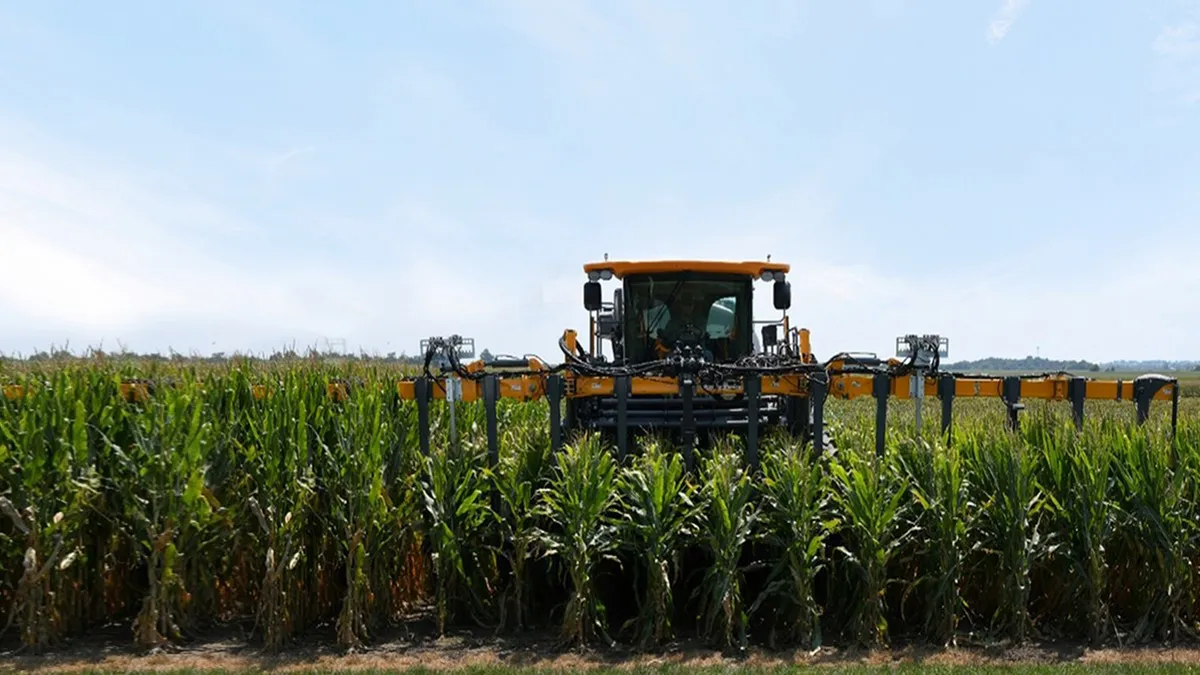Dive Brief:
- Biotech giant Bayer and Pairwise, a startup focused on gene-edited produce, will collaborate on a multi-million dollar effort to advance short-statured corn, the companies said last week.
- The five-year partnership agreement aims to enhance a type of gene-edited corn that is up to 40% shorter in height than traditional varieties for future use in Bayer’s flagship Preceon short corn products.
- The announcement comes after Bayer and Pairwise concluded an initial collaboration focused on developing gene-edited crops that require fewer inputs. Pairwise uses CRISPR technology to edit precisely and quickly a plant’s DNA and improve traits in a way traditional breeding methods could not.
Dive Insight:
Short-statured corn, similar to short wheat and rice, has the potential to assist farmers who’ve experienced crop losses from wind damage and severe weather. Due to the corn’s reduced height, Bayer said the stalks are stronger and less likely to break or fall over.
Shorter plants also make the corn fields more accessible to standard ground equipment longer into the season. That can lower costs for farmers, as shorter corn stalks allows for more precise application of crop protection products and other inputs.
After working with Pairwise for years on crops that promote stronger yields and disease-resiliency, Bayer is hopeful to bring gene-edited short corn to market in the near future.
“These kinds of new genomic techniques are extraordinarily focused and produce results much more quickly and precisely than the conventional breeding process, ensuring that we can accelerate the delivery of solutions that growers need,” Bob Reiter, head of research and development at Bayer’s Crop Science Division, said in a statement.
Financial details about the collaboration were not disclosed in the news release. A Pairwise spokesperson did not immediately respond to a request for comment.
A version of Preceon developed by traditional breeding methods is expected to be ready for commercial sale and planting by the 2024 growing season. However, short corn developed through biotechnology is likely years away.
Earlier this summer, the U.S. Department of Agriculture determined that a genetically-modified version of Bayer’s short corn was safe to grow and unlikely a plant pest risk. The company still needs approval from the Environmental Protection Agency and other importing countries before bringing the corn to market, Reuters reported. Gene-edited short corn is expected to launch in the middle to later part of this decade











